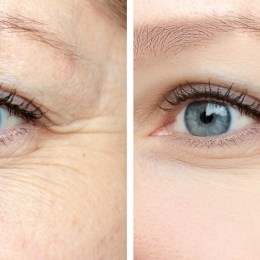If you offer injectables at your clinic, you may have noticed that anti-wrinkle injections seem to have a slightly different effect on each person. They relax muscles and therefore smooth wrinkles, but how come some of your patients come back for treatment after 3 months while others are fine for 5 or 6 months before they feel the need to ‘top up’? You may have even noticed a handful of patients who claim botulinum toxin “doesn’t work on them anymore.”
While a lot of people believe that our metabolism plays a role in the efficacy of ‘tox’, it is actually something way more serious. Aesthetics and neurotoxin company Merz Pharma has set out to educate industry professionals as well as consumers about the often overlooked possible result of regular tox injections: some people become resistant to it.
The reason behind this resistance is the potential for some botulinum toxins to stimulate an immune response as a result of unnecessary proteins, which remain in most products at the end of the manufacturing process. These unnecessary proteins in some formulations of botulinum toxin may mimic the mode of action of an adjuvant in a vaccine, which can have a higher potential to cause an immune response.
The problematic result of this is, not only will the patient be unable to see wrinkle-smoothing results from a treatment, but potential future therapeutic treatment for conditions such as movement disorders, endometriosis pain, or overactive bladders may also prove ineffective. Unfortunately, according to immunology expert Prof Michael Martin and Head of botulinum toxin research at Merz, Dr Jurgen Frevert, there is no ‘cure’ for the resistance other than going without the treatment for a few years.
However, using a purified version of botulinum toxin has shown to prevent immunity. Dr Frevert has created a purified product for both aesthetic and therapeutic indications to ensure that toxin would be effective for repeated treatments over an extended duration of time. A recent study conducted showed that up to 13.9% of patients had developed antibodies against tox, making their ongoing treatments a risk factor. Therefore, it is vital for practitioners to educate consumers about the different products available and the possible risks involved.
Merz are currently conducting educational briefings around the world in order to raise awareness of this issue. Find more information on this topic in our November print issue.





